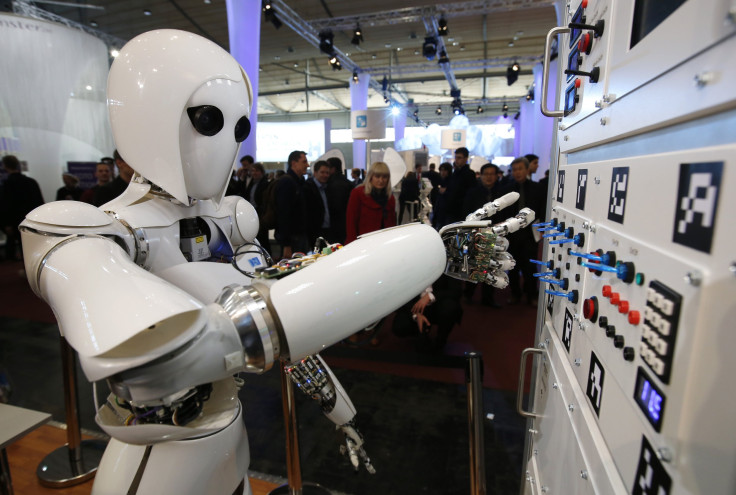Artificial Intelligence: Tech Giants Announce Partnership To Dispel Fears Over AI, Debate Future

Artificial Intelligence. Utter the words and the first thing many people — if not everyone — would think of is a “Terminator”-like sci-fi dystopia where sentient machines are hunting humans down. These misgivings about what an AI-dominated world would be like are not alleviated when the likes of Stephen Hawking warn that AI “could spell the end of the human race.”
Microsoft, Google, IBM, Facebook and Amazon want to change this gloomy perception. The tech giants on Wednesday announced the launch of a new non-profit organization — the Partnership on Artificial Intelligence to Benefit People and Society, or the Partnership on AI, for short — to advance the general public’s understanding of AI technologies, and debate concerns related to ethics, privacy, and transparency.
“Together, the organization’s members will conduct research, recommend best practices, and publish research under an open license in areas such as ethics, fairness and inclusivity; transparency, privacy, and interoperability; collaboration between people and AI systems; and the trustworthiness, reliability and robustness of the technology,” the companies said in a joint statement. “It does not intend to lobby government or other policymaking bodies.”
According to an unnamed member cited by the BBC, Apple is currently holding discussions with the consortium and may join the partnership “soon.”
All the companies that have joined the partnership have been researching AI-technologies in order to improve services. Earlier this year, Facebook, for instance, unveiled “DeepText” — a deep learning-enabled natural language processing engine that comprehends the textual content of several thousand posts per second, spanning more than 20 languages.
Even as the use of AI spreads, concerns over its implications and the direction the technology is taking have only increased. This is where the Partnership on AI, which said it hopes to ensure that the use of AI benefits as many people as possible, is expected to play an important role.
“The organization’s founding members will each contribute financial and research resources to the partnership and will share leadership with independent third-parties, including academics, user group advocates, and industry domain experts. There will be equal representation of corporate and non-corporate members on the board of this new organization,” the statement said.
The Partnership on AI is not the only group keeping a close eye on the direction AI technologies are taking. Last year, Tesla and SpaceX CEO Elon Musk — who has called AI humanity’s “biggest existential threat” — announced the creation of OpenAI, a nonprofit that says it aims to “advance digital intelligence in the way that is most likely to benefit humanity as a whole.”
© Copyright IBTimes 2024. All rights reserved.












